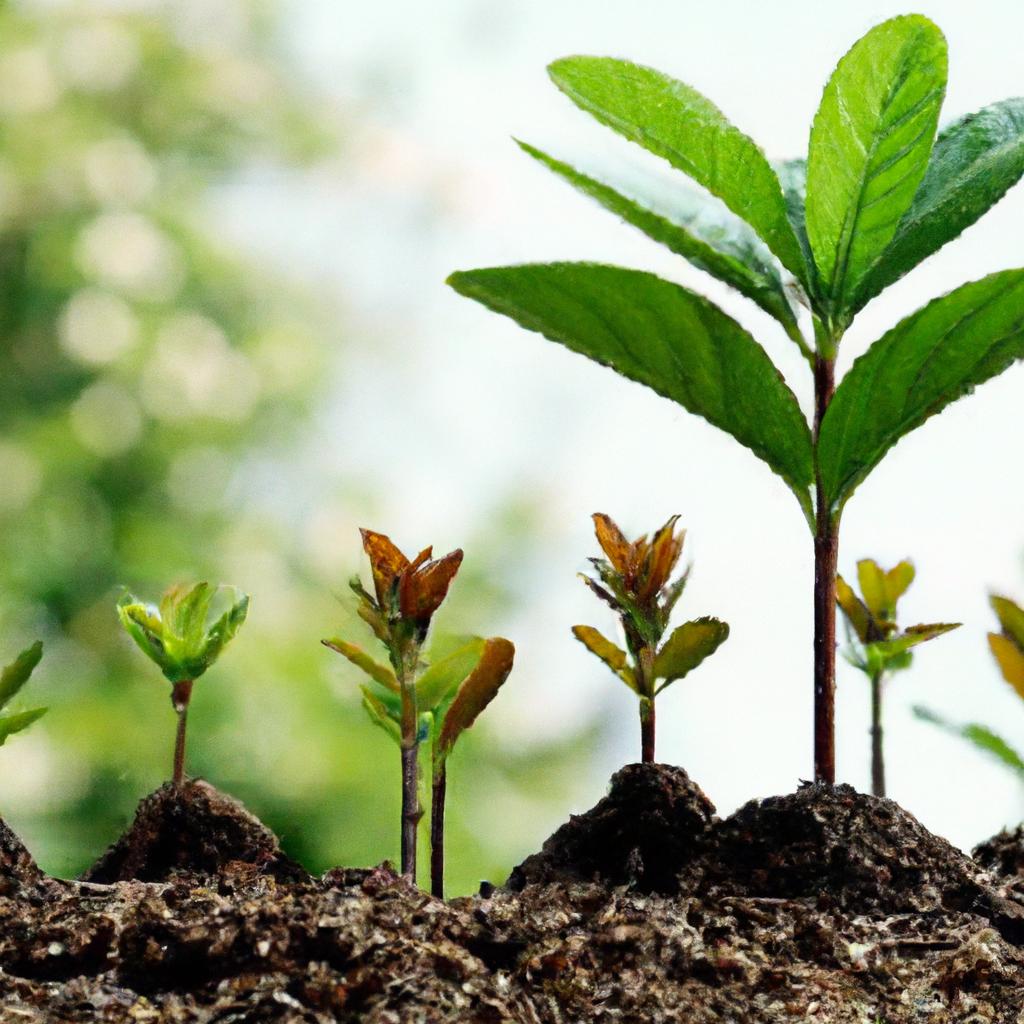As the world grapples with the pressing challenges of climate change and environmental degradation, the call for a more sustainable future has never been louder. In this era of transformation, the job market is evolving to embrace green initiatives that not only foster economic growth but also prioritize environmental stewardship. “Building a Greener Future: Exploring Sustainable Job Opportunities” delves into the dynamic landscape of eco-friendly careers that are reshaping industries and creating pathways for a sustainable economy. From renewable energy to sustainable agriculture, this article will guide you through the diverse opportunities available for those eager to make a meaningful impact on our planet while forging a fulfilling career. Join us as we explore how your professional aspirations can align with the health of our environment, paving the way for a brighter, greener tomorrow.
Embracing Sustainable Industries for Long-Term Career Growth
As industries evolve, the shift towards sustainability has garnered significant momentum, creating a plethora of opportunities for forward-thinking professionals. From renewable energy to eco-friendly manufacturing, these emerging sectors not only promise job security but also allow individuals to contribute to something greater than themselves. By aligning your career with sustainable practices, you can enjoy a diverse range of roles that emphasize innovation and ethical responsibility. Here are a few promising fields to consider:
- Green Technology: Focus on developing clean energy solutions, such as solar and wind power.
- Sustainable Agriculture: Advocate for eco-friendly farming methods and resource conservation.
- Circular Economy: Work towards minimizing waste through recycling and designing long-lasting products.
- Environmental Consulting: Help businesses comply with regulations and improve their sustainability profiles.
Transitioning to a career in sustainable industries can result in not only personal fulfillment but also collective environmental benefit. Companies across the globe are increasingly recognizing the need for sustainable practices, leading to robust demand for skilled professionals. Below is a simplified comparison of the average salaries and job growth rates in some key sustainable sectors:
| Industry | Average Salary | Job Growth Rate (2021-2031) |
|---|---|---|
| Renewable Energy | $76,000 | 11% |
| Sustainable Agriculture | $52,000 | 6% |
| Environmental Management | $70,000 | 9% |
| Green Building | $85,000 | 8% |

Innovative Skills for the Green Economy: What You Need to Succeed
To thrive in the rapidly evolving landscape of the sustainable job market, professionals will need to cultivate a diverse set of innovative competencies. These skills not only enhance individual employability but also contribute to the broader goal of transitioning to a greener economy. Key areas to focus on include:
- Renewable Energy Knowledge: Understanding various energy sources like solar, wind, and hydroelectric power.
- Sustainable Design: Proficiency in eco-friendly architecture and product design that minimizes environmental impact.
- Circular Economy Insights: Skills in developing systems that promote reuse and recycling, reducing waste.
- Data Analysis: Ability to interpret environmental data to drive decision-making and policy changes.
Moreover, collaboration and effective communication are essential soft skills that professionals should develop. Working across interdisciplinary teams helps implement innovative solutions efficiently. Training in project management can also aid professionals in smoothly executing sustainability initiatives. Here’s a glimpse of innovative skills along with their relevant industries:
| Skill | Relevant Industry |
|---|---|
| Life Cycle Assessment | Manufacturing |
| Green Finance Knowledge | Financial Services |
| Urban Planning | City Development |
| Environmental Law | Legal Services |

Navigating the Job Market: Resources for Sustainable Career Development
In today’s ever-evolving job landscape, leveraging the right resources is crucial for cultivating a sustainable career. Individuals seeking opportunities in green industries can benefit immensely from a variety of platforms dedicated to environmental jobs. Websites such as
Resource
Focus Area
LinkedIn
Networking and Career Development

Fostering an Eco-Conscious Workforce: Strategies for Employers and Employees
Creating an environmentally responsible workplace requires intentional efforts from both employers and employees. Employers can take the lead by integrating sustainable practices into their operations, such as reducing waste, conserving energy, and implementing green purchasing policies. Encouraging telecommuting can also significantly lower the company’s carbon footprint by reducing commuting emissions. Additionally, offering incentives for employees who use eco-friendly transportation methods, such as biking or public transit, fosters a culture of sustainability. The formation of green teams within the organization can enhance engagement, as these teams brainstorm and execute new ideas that contribute to a greener workplace.
Employees play a crucial role in a company’s sustainable journey by adopting eco-conscious habits both in and out of the office. Simple actions, such as using reusable containers, printing on both sides of paper, and turning off electronic devices when not in use, can create a significant impact over time. Participating in training sessions focused on sustainability can further equip employees with the knowledge they need to make informed decisions that benefit the environment. Creating an open forum for suggestions allows workers to contribute ideas that not only improve workplace sustainability but also enhance community efforts through outreach programs or local partnerships.
Key Takeaways
As we close the chapter on our exploration of sustainable job opportunities, it becomes clear that the path to a greener future is not only a collective endeavor but also an individual one. Each career choice, whether in renewable energy, sustainable agriculture, or eco-friendly technology, serves as a stepping stone toward a more sustainable world. Embracing these roles empowers us to weave environmental stewardship into the very fabric of our daily lives.
The journey ahead may not be without its challenges, but the potential for innovation and impact is boundless. As we seek out and nurture these sustainable opportunities, we not only contribute to a healthier planet but also inspire future generations to carry the torch of sustainability. Let us cultivate our passions, harness our talents, and dawn the role of change-makers in an economy that respects and uplifts our environment.
In a landscape teeming with possibilities, your next career move could very well be a pivotal part of the global movement towards a brighter, greener future.

